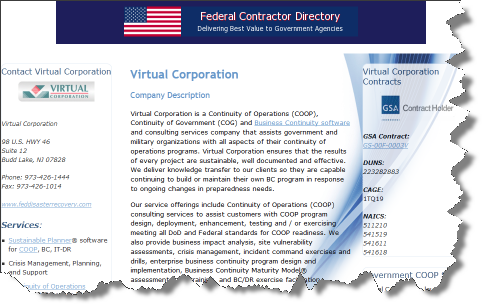What is a Government Capabilities Statement?
A Capabilities Statement tells prospective clients who you are, what you do, and how you are different from your competitors. It is a critical tool in government contracting, no matter what size company you represent. [Note: Some people refer to these as a CAPE or CAPE Statement.]
Are Capabilities Statements Required?
Many government agencies ask you to send them a Capabilities Statement before meeting with them. Some RFPs require you to submit one with proposals and bids. They are used to compare you with other vendors.
Prime contractors often ask potential subcontractors to submit capabilities statements before doing business with them.
New Capabilities Statement eLearning Course Coming Spring 2019
We will release a new self-paced eLearning course containing instructions on developing your Capabilities Statement, and sample templates in May 2019. If you want to be notified when it is released, please contact us.
What are the Key Characteristics of a Federal Capabilities Statement?
- Concise – 1-2 pages
- Visually appealing
- Electronic so it can be emailed (and searched) – put into PDF format.
- Customizable – so you can adapt this to each agency's needs.
- Demonstrates your government work experience plus relevant private sector experience.
What should the Capabilities Statement Cover?
- Core Competencies – your firm's skills and technologies that enable your company to provide a particular benefit to your customers and create a barrier to entry for competitors
- Qualifications and Credentials - your firm's unique experiences and resources that deliver extra value
- Differentiators - Explain how your company is unique, different, and distinct from its competitors in responding to client needs.
- Corporate Data – at a minimum, include a listing of essential information such as company size, special status (e.g., SDVOB, WOSB, 8A, HUBZone, etc.), CAGE code, DUNS, NAICS codes FSC, and PSC codes. Also, include key government points of contact. You might also include the number of employees and office locations.
Are Capability Statements the Answer?
They are a necessary tool, but capability statements do not produce results on their own. Far too many firms rely on conventional federal marketing techniques and try to mimic the business development and capture management methods of larger, more established companies.





